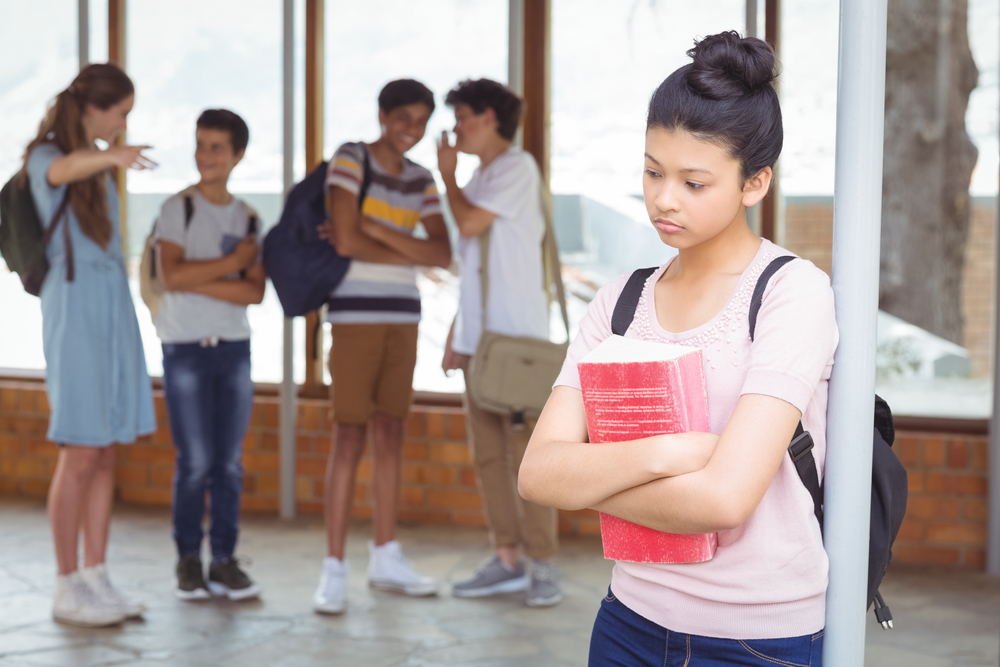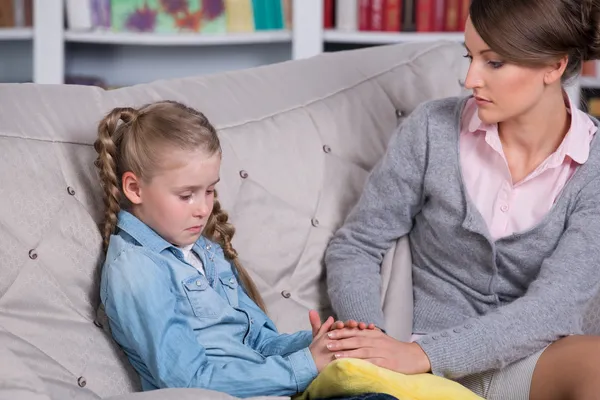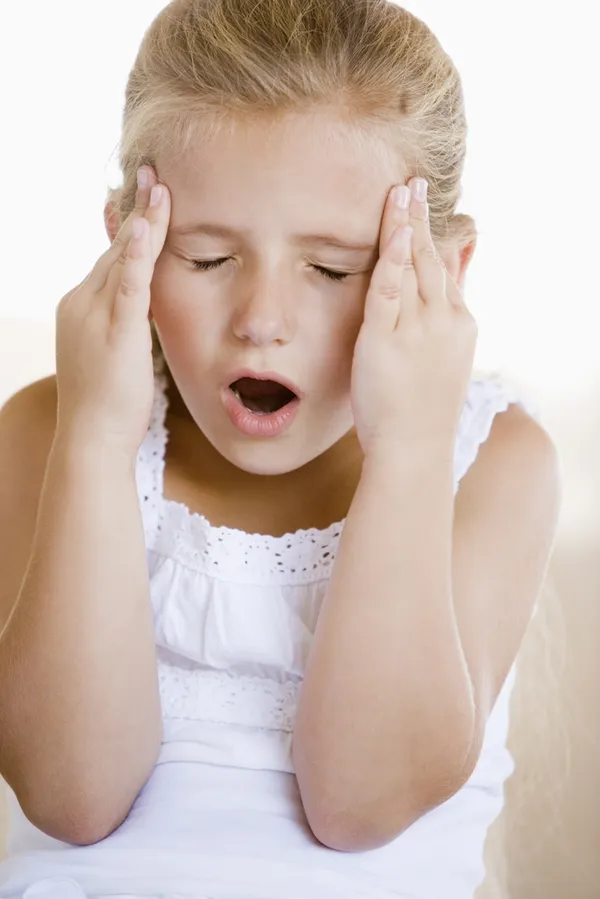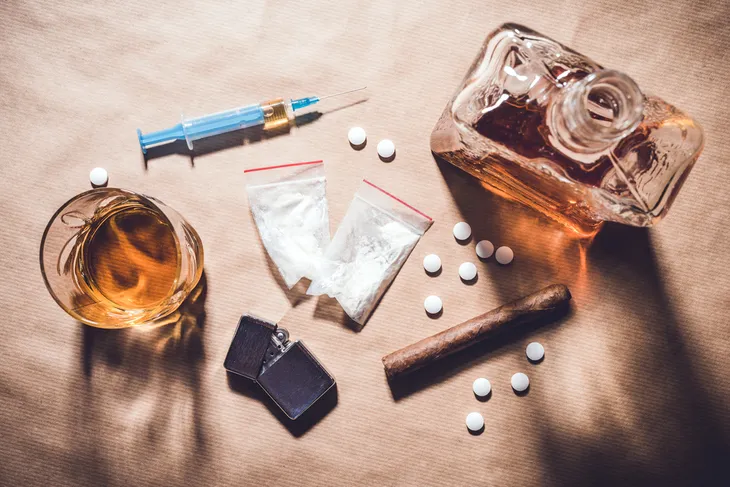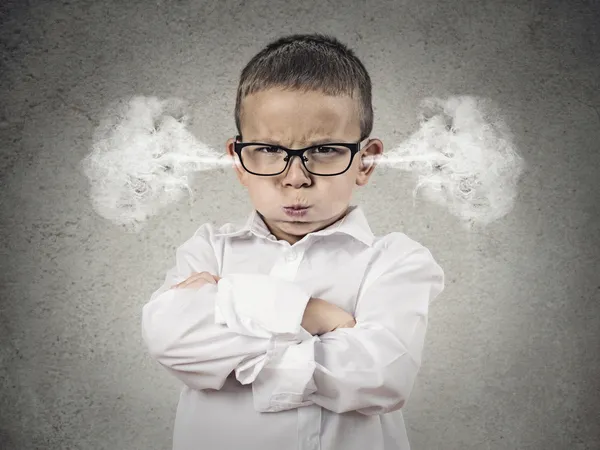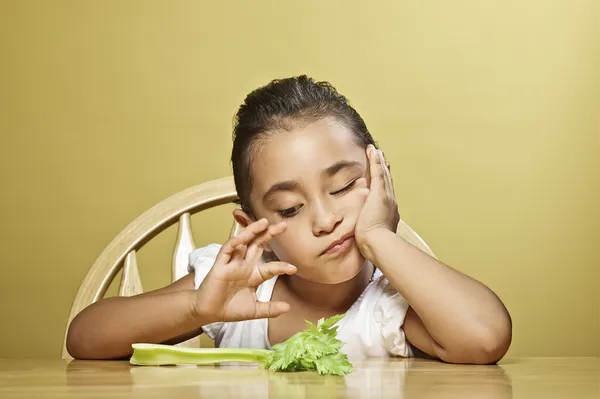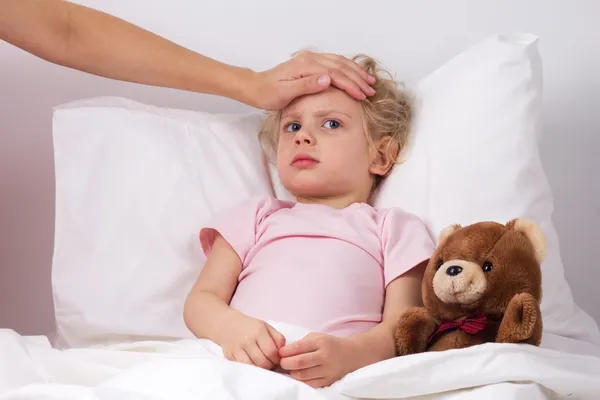We’re heading back into the school season (sigh) and while there are many anti-bullying campaigns out there and an overall greater awareness of it, it’s still bound to happen and your child may be on the receiving end of it – or be the one delivering it.
Your child may not want to talk about it, but there are signs and symptoms of being bullied that might present themselves to you (or a doctor or school official). It’s important to identify the source of the bullying and try to address it, as it can have major physical and mental impacts on kids. Here are seven things to look for…
1. Depression
The Eunice Kennedy Shriver National Institute of Child Health and Human Development explains that depression is a biggie when it comes to being bullied. Depression can cause kids to withdraw and become less interested in things they previously enjoyed.
Research from the national institute reveals something that may be a bit surprising to some – not only is the victim of bullying at risk of becoming depressed, but also the bully. “NICHD research studies show that anyone involved with bullying … are at increased risk for depression,” adds the source.
2. Sleep Impacts
Proper sleep is essential to a child’s development and performance in school, but being bullied can throw off their rest, according to VeryWell.com. Again, the source explains it’s not only those being bullied that are impacted – those who bully are hurting themselves, too.
The explanation for why bullies lose sleep may be tied to an underlying health problem, it adds. “In fact, multiple studies have shown that aggressive kids are more likely to have sleep-disordered breathing than their non-aggressive counterparts,” explains the source.
3. Headaches and Stomachaches
Stress from being teased and bullied at school can have a physical manifestation. Children’s National Health System says your child may experience a variety of symptoms from headaches, stomachaches, and even dizziness. (There are also those kids who will play sick to avoid having to go to school.)
Of course, there are other direct physical impacts of bullying from being slapped, punched, or pushed around, it adds. You may notice bruises on your child that they may or may not have plausible explanations for.
4. Drug Abuse
StopBullying.gov explains substance abuse is a risk of someone who does the bullying (although some people who have been bullied may turn to self-medicating later in life). “Kids who bully others can also engage in violent and other risky behaviors into adulthood,” notes the site.
Those who pick on others may get into alcohol and other riskier drugs in adolescence, explains the source. Taking drugs – especially illicit drugs – can affect a young person in many adverse ways, from getting into trouble to having negative health reactions that can be life-threatening.
5. Repressed Anger
Being bullied constantly can cause a child internalize anger – especially if they’re afraid to stand up to their aggressor. Bullying “can result in intense feelings of anger and fantasies of revenge against the one who bullies which can be misdirected, primarily at family members,” explains ChildHealing.com.
The source adds that excessive anger in those who have been bullied can make it tougher to work through the sadness and anxiety associated with it. The source points to a long-term study of lasting psychological impacts from bullying, which apparently did not take anger into consideration. “If the level of anger had been measured in these individuals, it would have been significant and probably would have been associated with impulses for revenge,” it notes.
6. Digestive Problems
The American Society for the Positive Care of Children explains there is a “close relationship between your brain and digestive system” and the network of nerves connected to your gut can trigger problems when you’re under stress – in particular from being bullied.
Those who already suffer from irritable bowel syndrome (IBS) can notice the biggest problems, with symptoms such as pain and bloating becoming worse. However, the source explains that even those without IBS can experience constipation and bloating as stress hormones slow the digestive process.
7. Lowered Immunity
Those who are the victims of bullying may experience more minor ailments such as colds and coughs. That’s because bullying “might cause changes in the immune system, leaving body on the doorstep of infections and diseases,” according to OnlyMyHealth.com.
The source says researchers from Duke University tested the effects of social stress on monkeys, introducing them to a new group where they held a low status. The result was that “capability of immune system fell significantly,” adds the source. The research team believes the findings apply to humans as well.
